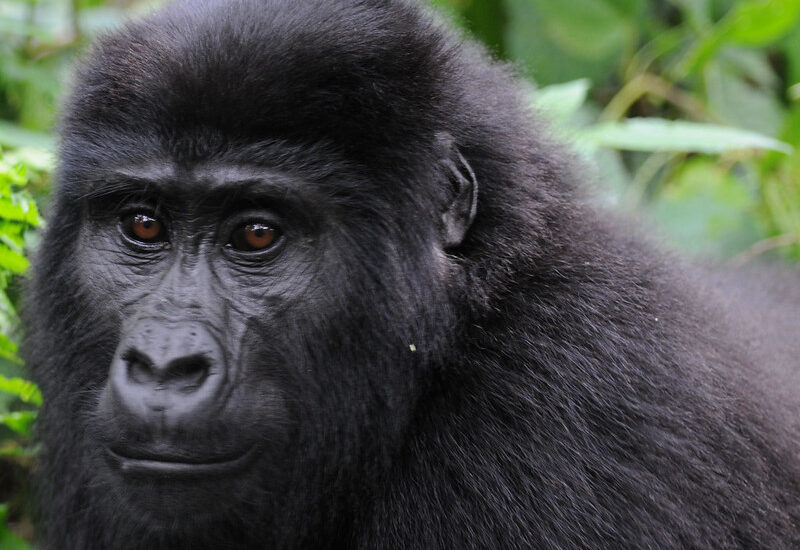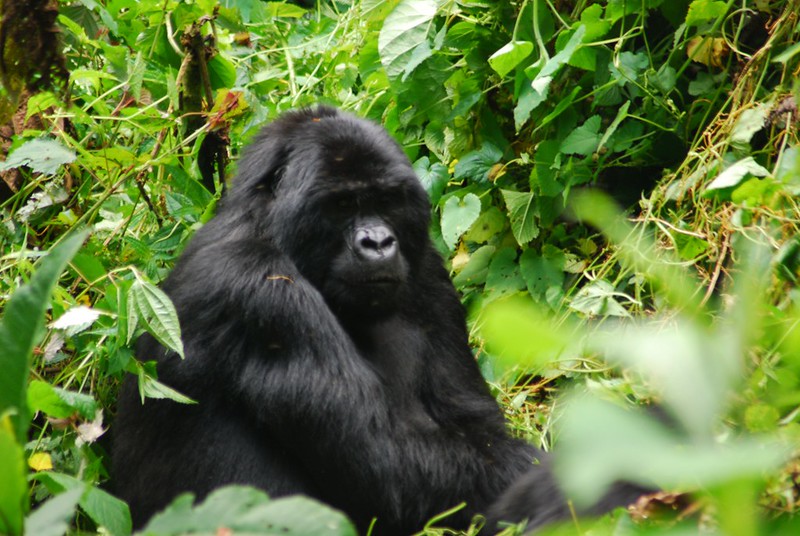Dian Fossey in East Africa. East African Dian Fossey came into this world in San…
What is Safer, Rwanda or Uganda?
What is Safer, Rwanda or Uganda?
When it comes to planning a trip to East Africa, one of the most common questions travelers ask is: What is safer, Rwanda or Uganda? Both countries are popular travel destinations, particularly for those seeking unforgettable experiences like gorilla trekking in the Volcanoes National Park of Rwanda or Bwindi Impenetrable Forest in Uganda. However, when considering safety, it’s essential to understand the broader context of each country’s political, social, and environmental conditions.
In this article, we will break down various factors influencing safety in Rwanda and Uganda, from crime rates and political stability to public health concerns and wildlife safety. By the end of this article, you’ll have a clearer picture of which country might be safer for you as a traveler.
Political Stability: Rwanda vs. Uganda
Rwanda’s Stability and Governance
Rwanda has long been regarded as one of the most politically stable countries in Africa. Since the end of the 1994 genocide, which left the country deeply scarred, Rwanda has undergone a remarkable transformation. Under the leadership of President Paul Kagame, who has been in power since 2000, Rwanda has made significant strides in terms of development, economic growth, and political stability.
Rwanda’s government has been praised for its efforts to ensure national security, combat corruption, and maintain law and order. Kagame’s regime is known for its strong control over the political landscape, but the country has not experienced significant internal conflicts or civil unrest in the past two decades. Rwanda’s government has invested heavily in infrastructure and tourism, making it one of the safest destinations in Africa for travelers.
However, while Rwanda’s political climate is stable, it is essential to recognize that Kagame’s rule has faced some international scrutiny over allegations of human rights abuses and restrictions on political freedoms. That being said, the government’s track record in terms of creating a secure environment for tourists is generally regarded as positive.
Uganda’s Political Environment
Uganda, on the other hand, has a more complex political landscape. The country has been under the leadership of President Yoweri Museveni since 1986, making him one of Africa’s longest-serving heads of state. While Museveni initially garnered support for ending a long period of civil war, his extended time in power has led to significant political tension in recent years.
Uganda has experienced political unrest and occasional violence, particularly during election periods. Protests, opposition crackdowns, and a tense political atmosphere can sometimes lead to heightened risk for locals and visitors. However, day-to-day life for tourists in Uganda is generally safe, especially in major cities and popular tourist areas such as Kampala, Entebbe, and Bwindi Impenetrable Forest.
Despite political tensions, Uganda’s government has made efforts to maintain a secure environment for international visitors. The Ugandan Tourism Board and various security agencies work to ensure the safety of tourists, particularly in protected areas like national parks. However, travelers should always stay updated on local news and be cautious during times of political unrest.
Conclusion on Political Stability
While both Rwanda and Uganda enjoy relative political stability compared to other African countries, Rwanda has a stronger reputation for consistent governance and internal peace. Uganda’s longer-standing political challenges, including occasional civil unrest, can make it less predictable in terms of safety, particularly around election periods.
Crime and Personal Safety: Comparing the Two Countries
Crime in Rwanda
Rwanda is known for its low crime rate, especially compared to many other African nations. The government places a strong emphasis on law enforcement and has made substantial investments in crime prevention. Kigali, Rwanda’s capital, is often hailed as one of the safest cities in Africa. Petty crimes such as pickpocketing are rare, and violent crime is even less common.![]()
While the country is considered very safe for travelers, it’s always wise to practice standard safety precautions like avoiding isolated areas at night, keeping an eye on personal belongings, and using reliable transportation. In rural areas, there may be more limited access to emergency services, so it’s important to be cautious when trekking or exploring remote parts of the country.
Crime in Uganda
In Uganda, crime rates can vary depending on the region, though the country has a higher crime rate than Rwanda, especially in urban areas. Kampala, Uganda’s capital, experiences petty crimes such as theft and pickpocketing, particularly in busy areas like markets or transportation hubs. Violent crime, though less common, does occasionally occur, particularly in densely populated neighborhoods or regions with higher poverty rates.
In general, Uganda’s national parks and tourist sites, like Bwindi Impenetrable Forest, are considered safe, with most incidents occurring in cities or areas with a high concentration of tourists. However, travelers should exercise caution when walking in unfamiliar areas, avoid displaying valuables in public, and use reliable local transportation to minimize risk.
Conclusion on Crime
Rwanda has a stronger reputation for low crime and high personal safety, particularly in urban centers and tourist destinations. While crime exists in both countries, Rwanda’s overall crime rate is lower, making it a safer option for those concerned about personal security. Uganda’s crime rates are slightly higher, particularly in urban centers, but are still considered manageable for tourists who take appropriate precautions.
Health and Environmental Safety
Health Concerns in Rwanda
Rwanda is generally a safe destination from a health perspective, but like many African countries, travelers need to take specific precautions. Malaria is a risk, particularly in lowland areas, so anti-malarial medication and mosquito repellents are advised. Yellow fever vaccination is also recommended for travelers entering Rwanda from endemic areas.
The healthcare system in Rwanda is improving, especially in major cities like Kigali, where international-standard hospitals are available. However, rural areas may have more limited access to healthcare services, which is something to keep in mind when traveling to remote areas for trekking or wildlife experiences.
Health Concerns in Uganda
Like Rwanda, Uganda also has its share of health concerns. Malaria is prevalent throughout the country, especially in lower-lying areas, and travelers should take necessary precautions, including anti-malarial medication. Other diseases such as typhoid fever and cholera can occasionally be a risk in some regions, especially in areas with poor sanitation or where access to clean water is limited.
Uganda also has a relatively underdeveloped healthcare system, with the best services concentrated in urban areas. Rural areas, including those near national parks, may have limited medical facilities, so it’s recommended to have comprehensive travel insurance that includes medical evacuation.
Wildlife Safety
Both Rwanda and Uganda are famous for their mountain gorillas, and the safety protocols surrounding gorilla trekking are robust in both countries. However, since gorilla trekking is a physically demanding activity, it’s important to be aware of the potential risks involved. The dense forests of Rwanda and Uganda can be challenging to navigate, and travelers should be prepared for long hikes in muddy and steep terrain.
In Uganda, trekking in Bwindi Impenetrable Forest can be particularly strenuous due to the rugged nature of the terrain. Both Uganda and Rwanda have professional guides and park rangers who ensure the safety of trekkers. They will provide briefings on how to behave around gorillas to avoid stressing them or provoking an aggressive response.
Tourism Infrastructure: Which Country Offers a Safer Experience?
Rwanda’s Infrastructure and Safety Measures
Rwanda has made significant investments in its tourism infrastructure in recent years, focusing on improving road networks, hotels, and visitor services. Kigali, Rwanda’s capital, is a modern, well-planned city with excellent amenities and transport links. The country’s national parks, including Volcanoes National Park, are well-managed, with safety measures in place for tourists.
Rwanda’s strong emphasis on conservation and eco-tourism means that tourists are usually well-prepared for activities like gorilla trekking. The park rangers provide detailed safety briefings, and there are strict regulations governing human-gorilla interactions to ensure both the safety of the gorillas and the trekkers.
Uganda’s Infrastructure and Safety Measures
Uganda has also made strides in improving its tourism infrastructure, particularly in areas like Bwindi Impenetrable Forest and Queen Elizabeth National Park. While roads leading to some national parks may be less developed than in Rwanda, the government is investing in improving access to these areas for tourists.
In Uganda, the wildlife authorities are also committed to ensuring that visitors enjoy a safe experience, especially in national parks. Similar to Rwanda, Uganda’s gorilla trekking programs have strict regulations in place to protect both the gorillas and the trekkers.
Which Country is Safer?
Both Rwanda and Uganda are generally safe travel destinations, particularly for those interested in wildlife tourism like gorilla trekking. However, there are distinct differences in terms of political stability, crime rates, healthcare, and overall safety.
Rwanda is widely regarded as safer in terms of political stability, crime rates, and infrastructure. Its low crime rates, effective law enforcement, and consistent investment in tourism make it a popular and safe choice for travelers, especially solo travelers or those visiting for the first time.
Uganda, while still a relatively safe destination, has more variability in terms of safety due to its political climate, higher crime rates in urban areas, and sometimes limited healthcare facilities. However, Uganda remains a fantastic option for travelers seeking adventure and wildlife experiences, especially with its impressive national parks and diverse landscapes.
Ultimately, the choice between Rwanda and Uganda for safety depends on your travel preferences. If political stability and a very low crime rate are your top priorities, Rwanda is likely the safer option. However, if you are looking for a more adventurous experience with fewer tourists and are willing to take precautions, Uganda remains a viable and safe destination for travelers with a bit more experience.


